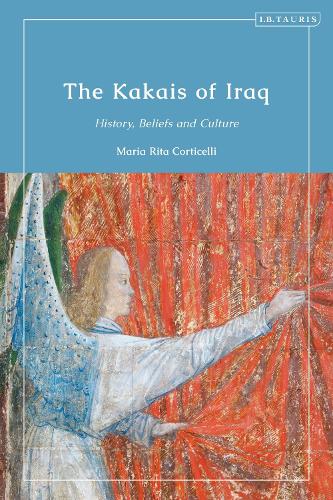
The Kakais of Iraq: History, Beliefs and Culture
(Hardback)
Publishing Details
The Kakais of Iraq: History, Beliefs and Culture
By (Author) Maria Rita Corticelli
Bloomsbury Publishing PLC
I.B. Tauris
23rd January 2025
United Kingdom
Classifications
Professional and Scholarly
Non Fiction
Other religions and spiritual beliefs
Physical Properties
Hardback
192
Width 162mm, Height 238mm, Spine 16mm
440g
Description
The Kakais are a Kurdish-speaking indigenous population belonging to the Yarsan religion, originating from the Zagros Mountains in present-day Northern Iraq. There are currently around 200,000 Kakais in Iraq, but due to a history of heavy persecution, including targeting by ISIS, the community is under threat of disappearing. This book is based on historical research, interviews, and in-depth fieldwork, as well as on their available original texts. It explores the resilience of the Kakai religious group in Iraq amid violence and war, emphasizing their values of humility, peace, and tolerance, and showcasing their struggle for recognition in the face of persecution. It touches on recent events affecting them and calls for international support and recognition of the Kakai community's unique challenges.
Reviews
The book explores the resilience of the Kakai religious group in Iraq amid violence and war, emphasizing their values of humility, peace, and tolerance, showcasing their struggle for recognition in the face of persecution. It touches on recent events affecting religious minorities in Iraq and calls for international support and recognition of the Kakai community's unique challenges. -- Shak Bernard Hanish, Professor, National University, USA
Author Bio
Maria Rita Corticelli is an independent writer and editor. She collaborates with various academic and research institutions. She is the author of Religious Minorities in Iraq: Co-Existence, Faith and Recovery after ISIS (I.B. Tauris 2022). Luqman Rashid is a Kakai activist from Iraqi Kurdistan. He holds an MA degree in International Studies from the University of Erbil-Hawler in the Kurdistan Region. He has published articles in both Kurdish and English on the Yarsanis in the Kurdistan region and he is the author of Arabic and Kurdish books on the situation of religious minorities in Iraq. He advocates for the recognition of Yarsanis in Iraq.
